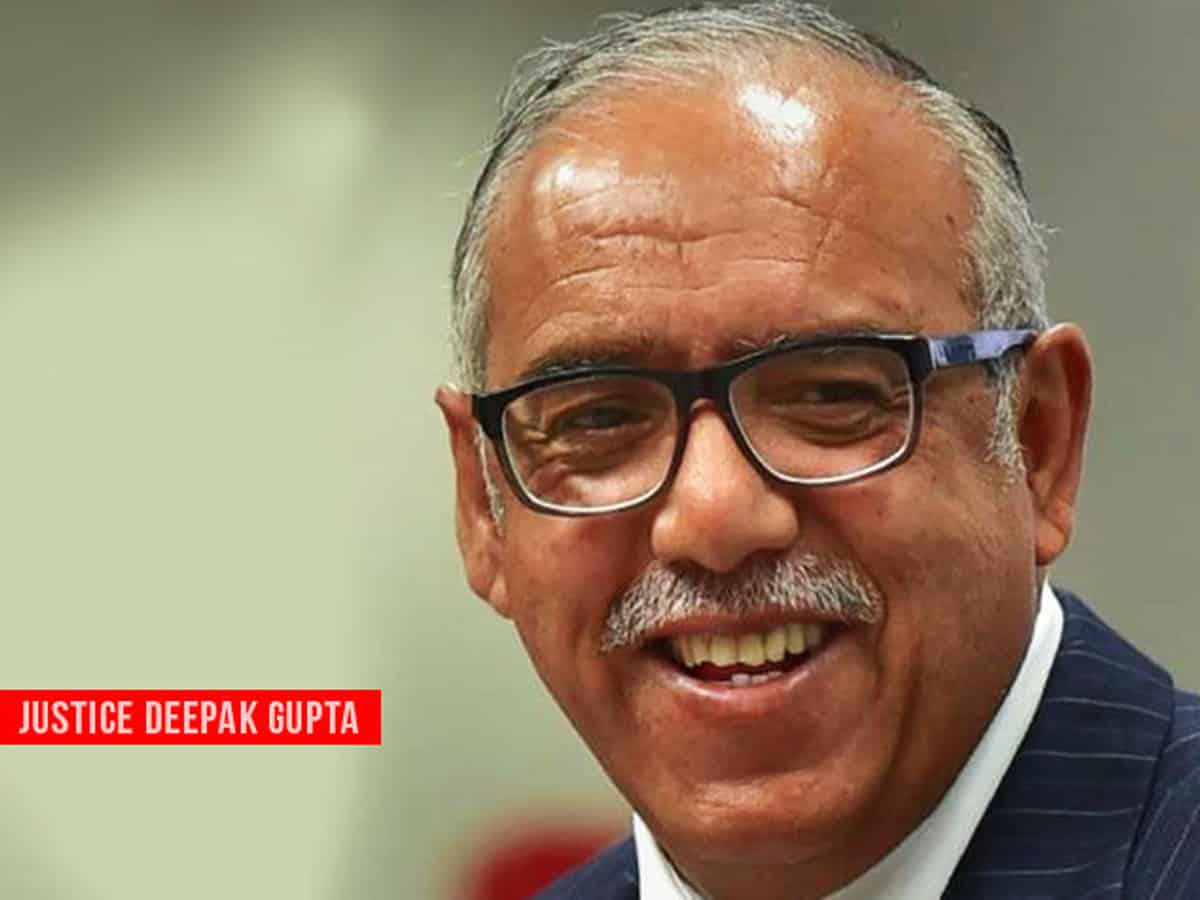Celebrating Pakistan’s victory, defeating India at the Cricket World Cup, is definitely not Sedition, former Supreme Court judge Justice Deepak Gupta said recently.
In an interview to Karan Thapar for The Wire, Justice Gupta said,
“It is definitely not sedition but, it is definitely ridiculous to think that it amounts to sedition… There are better things to do than charge these people for offences that will never stand in court; waste public time and money.”
The former Judge added that such actions may very well be offensive to some people, however, it’s not a crime.
“A thing may be legal but it’s different from saying it’s illegal…All legal actions are not necessarily good or moral actions and all immoral or bad actions do not necessarily turn into illegal actions. Thankfully, we are governed by the rule of law and not by rule of morals…Morality has different connotations in societies, different religions and different times…”
Sedition is punishable under Section 124A of IPC.
Justice Gupta referred to the case of Balwant Singh & Anrv. State Of Punjab, where the Supreme Court had held that shouting “Khalistan Zindabad’ is not sedition as there is no call to violence or public disorder.
In this backdrop, he added that the tweet posted by Uttar Pradesh Chief Minister’s office that Kashmiri student in Agra who celebrated Pakistan’s victory over India would be charged with sedition— “is definitely against the law of the land” and “is not a responsible thing to do”.
“If they (CM’s office) went through various judgments on Sedition, the Chief Minister would have been then advised not to issue such a statement. I don’t know if they are aware of that famous case (Balwant Singh).”
The former Judge added,
“I may not support the action, though in sports why can’t you support the other side…Lots of UK citizens or Australian citizens of Indian origin cheer for India when a match is played at the Lords (cricket ground). What would any of us in India feel if they were charged with sedition in their respective countries? Then we would be singing a totally different tune.”
Need to relook into the need for offence of Sedition
On being pointed that the charge of Sedition is continued to be misused by politicians and police, Justice Gupta said,
“Now the time has come where, when there is challenge to the constitutional validity of this Section of Sedition, the Supreme Court must step in and in no uncertain terms declare whether this law is constitutionality valid or not. Even if it’s valid, what are its limitations make it very strict.”
On earlier occasions also, Justice Gupta has expressed his reservation on the existence of this provision in a civilized democracy. He is of the firm view that the provision must be abolished.
“Right To Question Govt Is The Essence Of Democracy, Sedition Law Should Be Shown The Door As Soon As Possible”: Justice Deepak Gupta
In July this year, current Chief Justice of India NV Ramana had also expressed reservation at continuing the use of the provision, saying the law introduced during the colonial era to suppress the freedom movement may not be necessary in the present-day context.
Later, Justice Rohinton Nariman, also a former Supreme Court Judge, called upon the Top Court to strike down the penal provision of sedition, apart from offending portions of the UAPA.
Meanwhile, a batch of petitions challenging the provision are pending adjudication before the Supreme Court.
Justice Gupta said he hopes that the Supreme Court will hear them “as expeditiously as possible”.
Charges against Kashmiri students celebrating Pakistan’s victory in Agra prima facie unsustainable
In parting, the former Judge also stated that prima facie, the other charges levelled against the Kashmiri students in UP, appear unsustainable.
(The Judge made it clear that he was not talking about any celebrations of Pakistan’s victory that may have happened in Jammu and Kashmir.)
They are booked under Sections 153A (promoting enmity on grounds of religion) and 505(1)(b) (making statements which may induce others to commit an offence against the state or public tranquillity) of IPC and Section 66F (cyber-terrorism) of the IT Act.
“It’s a ridiculous allegation…have they said anything against Hinduism?” Justice Gupta said on the charge of Section 153A.
He added that invocation of Section 505(1)(b) IPC against these students is also unwarranted because they were merely celebrating, not inciting anyone. “If people take offence from their actions and then commit an offence, for that these students can’t be made responsible.”
On the charge of cyber-terrorism, the Judge noted that there was no tweet or use of any electronic medium in their celebration of Pakistan’s victory.
“I may not agree with them in celebrating such a victory. Given the relations between India and Pakistan, it may not be the most wise thing to do. But that does not make it a crime,” Justice Gupta parted saying.

